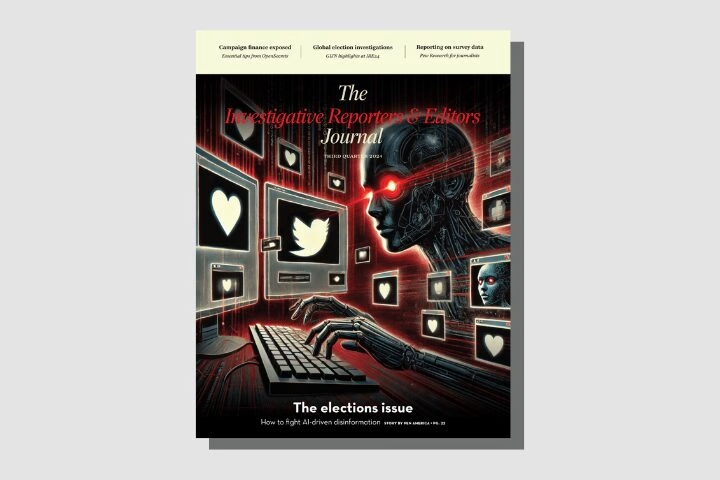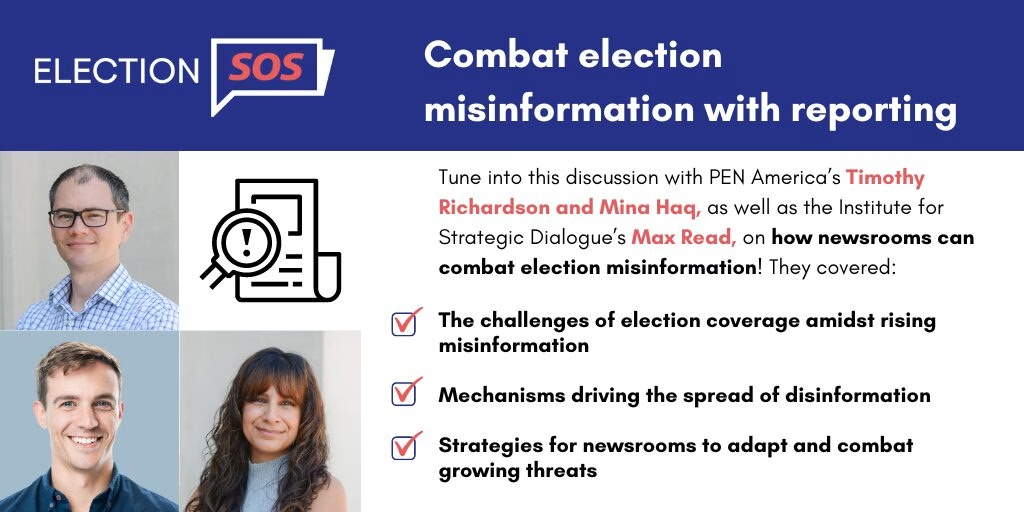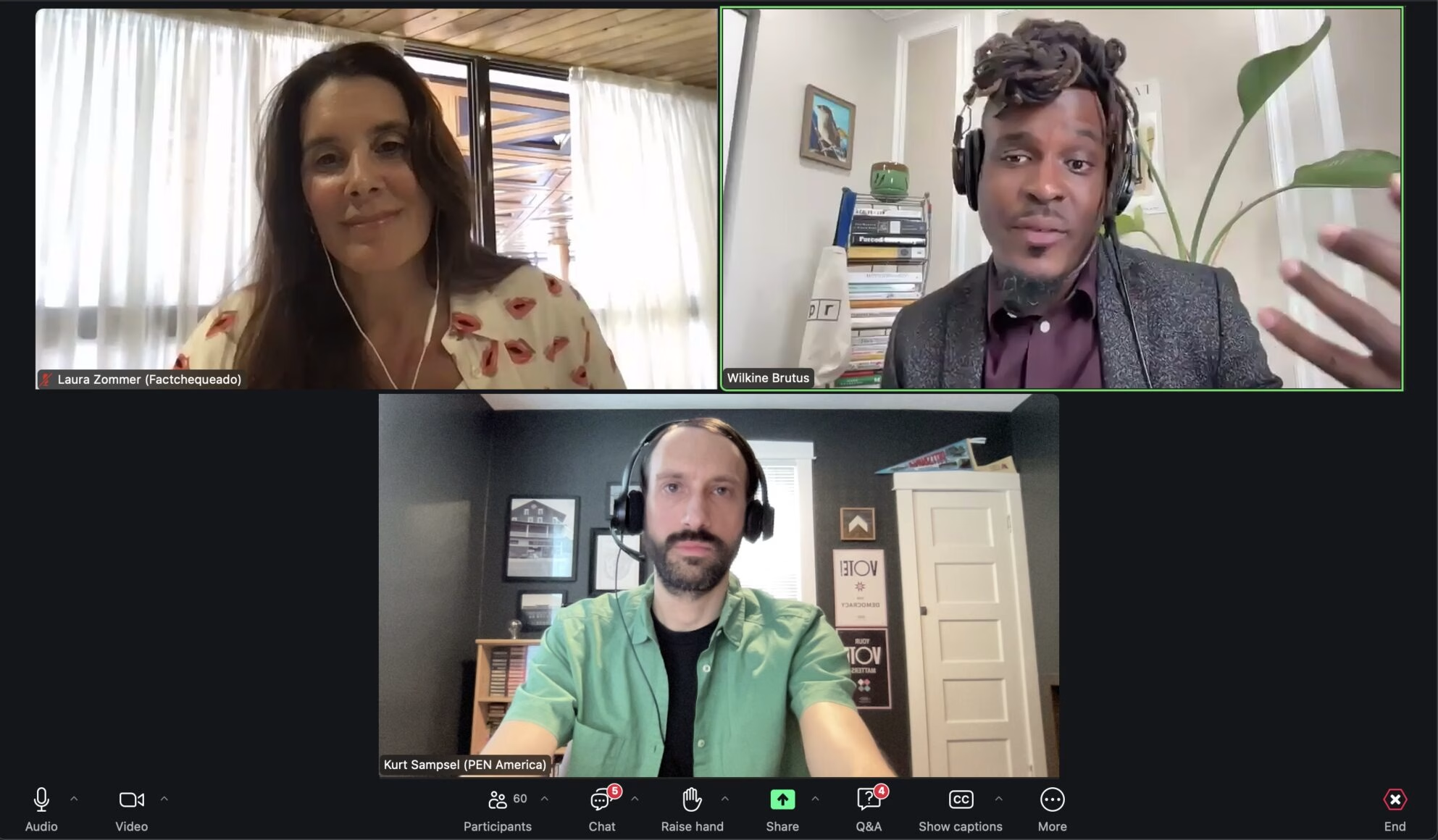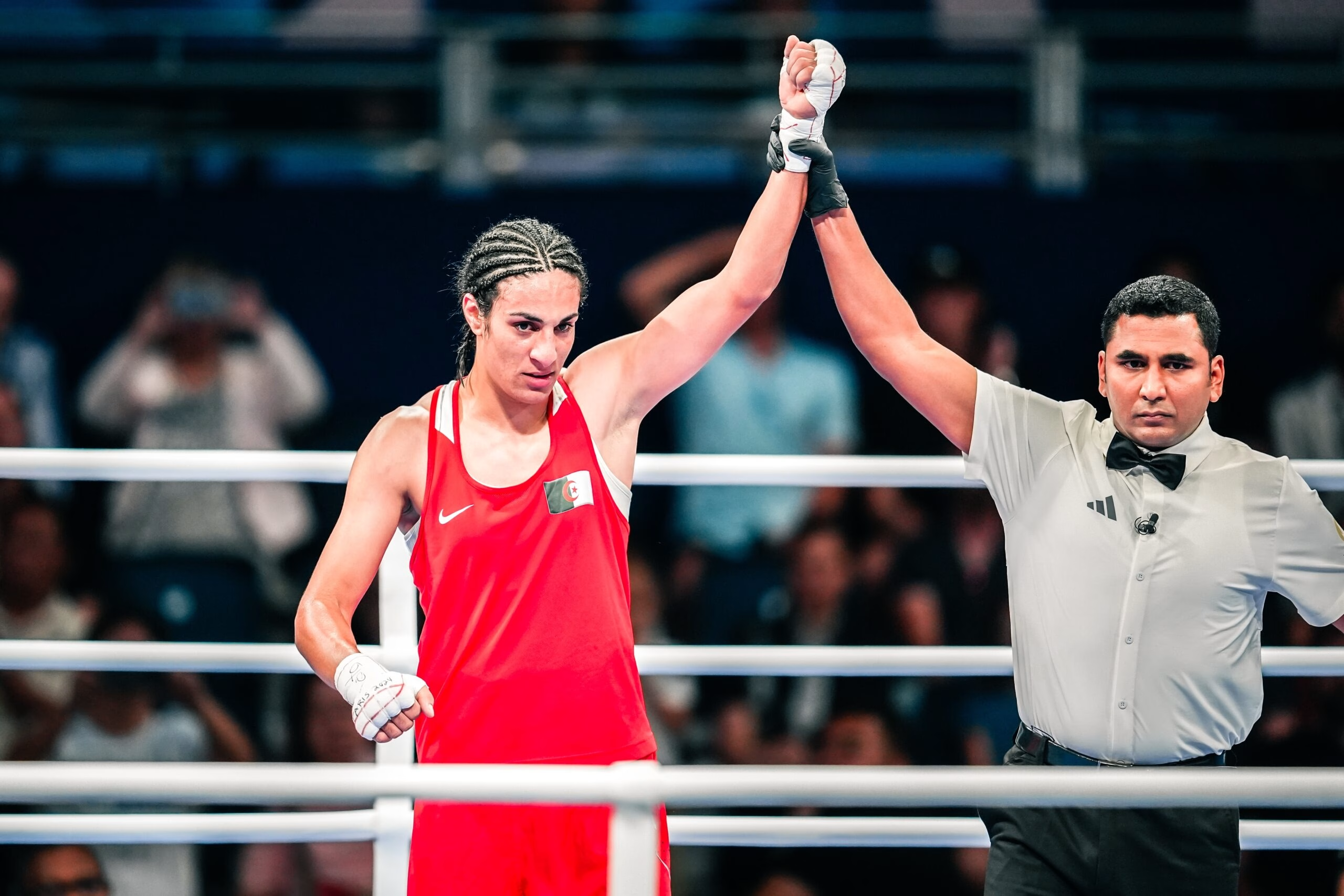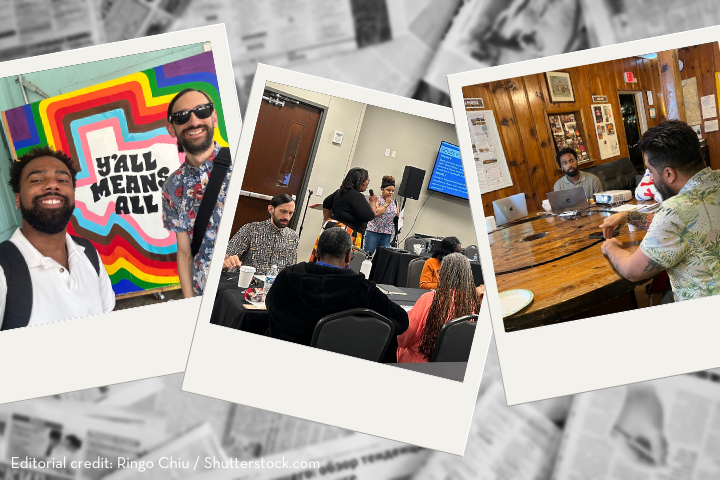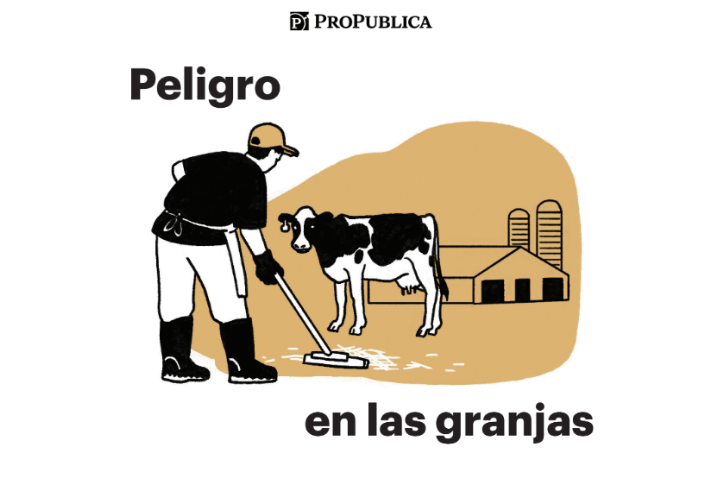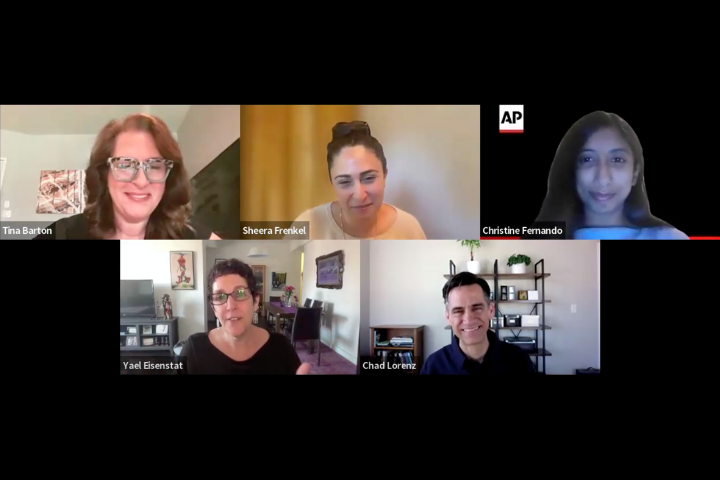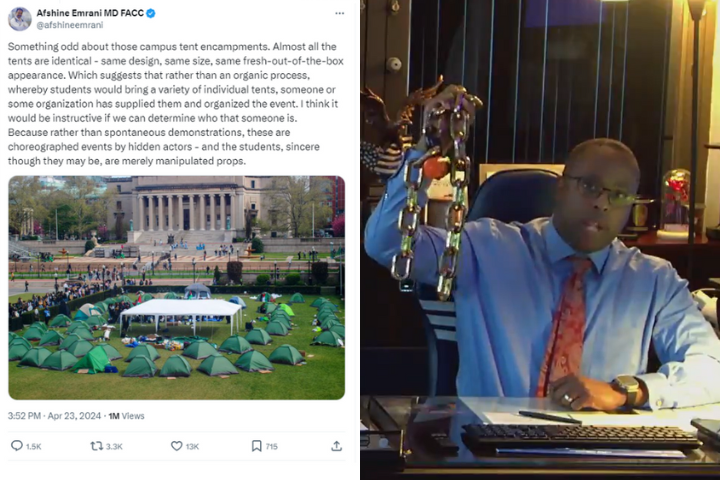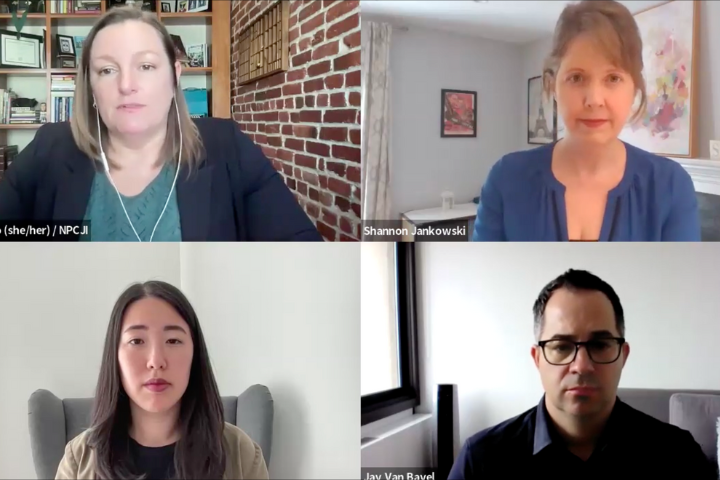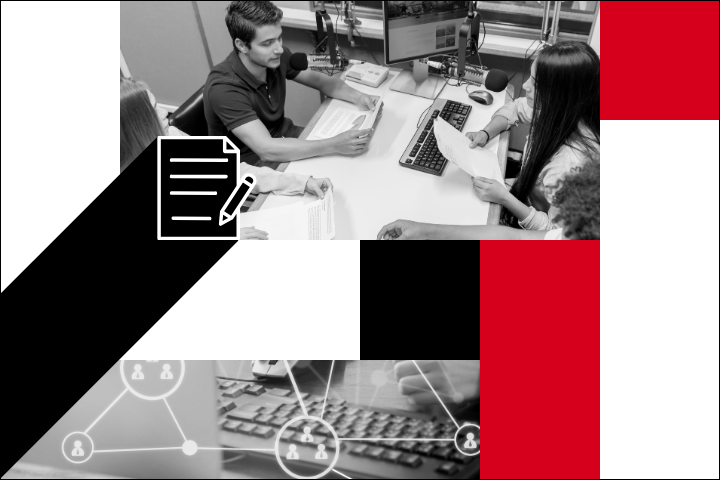This Q&A is part of a series of interviews with journalists and experts who regularly handle disinformation. The interviews will appear regularly through the election and beyond to highlight best practices, insights, case studies and tips. Our goal is to provide a resource to assist reporters and community members through the news events of 2024.
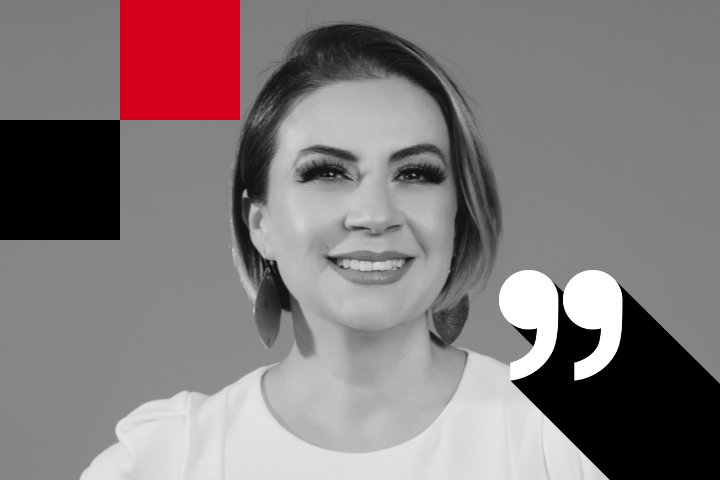
In the early days of the Covid pandemic, Maritza Félix began sharing fact-checked information about the virus in a family group chat. Today, she leads Conecta Arizona, a transborder initiative that challenges false information and polarization through listening, community, and a sense of humor.
This interview was edited for length and clarity.

You founded Conecta Arizona at the beginning of the Covid pandemic in 2020. What made you recognize that a resource like that was needed?
Conecta Arizona is a news-you-can-use service that connects transborder communities, and we have one foot in Arizona and the other one in Mexico and Latin America.
It started in 2020 when the pandemic hit. My mom stays on the Mexican side of the border, and I stay on the U.S. side of the border. She’s a real queen of WhatsApp – she’s the one who sends all the memes, all the glitter, all the flowers and prayers every single morning. When the pandemic started, she was sending everything that she found on the coronavirus. It was things like “Baking soda, hot water, and lemon are going to cure you from coronavirus.” Or “Mijita, please clean everything that you buy from Amazon. Leave it in the sun for a couple of days and then use the Clorox wipes before you take it into your house.” I would always respond, “Mom, I don’t think that’s how it works, but let me fact-check that for you.”
And that’s how we started – a very small family group to spread good information about the virus. But then the group grew organically, and with the election in 2020 and people with guns outside voting places, I realized, “Ah, I think that Conecta Arizona is not going to disappear after three months, as I thought.” So, four years later, we’re still here, trying to provide news and information that’s fact-checked about health and so many other topics. We use WhatsApp, a newsletter, a website, a podcast, and we have a radio show.
You’ve said the border region has inspired your life and career. Could you say a bit more about that?
When you’re a fronterizo, when you live so close to the border, you grow up going back and forth. I used to celebrate my birthdays at McDonald’s and then have tacos and piñatas in Mexico the same day. The border is where I got to buy my dancing shoes for my graduation, where I bought my wedding dress.
Since I’ve been living close to the border for so long, I have a different perspective than what we see in the news. Most journalists and news organizations parachute in, and they don’t invest the time to get to know how vibrant, how alive, how much love there is around the border. The border is different than the U.S. or Mexico; we are our own thing. Even though we have a wall in the middle, it is a community, and it’s completely different than everywhere else.
At the beginning, when I launched Conecta Arizona, I tried to do a group for Arizona and another group for Sonora, but everybody was in both groups, because they all wanted to know what was going on in both places. So I decided to merge them. We cover the Latino community that is mainly Mexicans in Arizona, but we have people from Peru, Venezuela, Colombia, Ecuador, El Salvador, Guatemala, and Nicaragua.
You’ve said that Conecta Arizona does service journalism. What does service journalism mean to you?
We actually listen. We have a commitment to two-way communication. I think if you want to serve the Latino community in Arizona, you need a willingness to actually sit down and listen to the community. A “contact us” form is not enough.
So, our service is to sit down, have conversations, let people speak, let them express whatever point of view they have. We’re very committed to creating a safe space to have these conversations and to not become an echo chamber of one point of view.
For me, as a journalist, sometimes it’s challenging because I’m a fixer and I’m a provider, and so I want to assume what the community needs or push what I think is important. And sometimes my community stops me and makes me listen to what they need and what they want to hear.
Conecta Arizona provides community and debunks false information. How does the community aspect help you tackle mis- and disinformation?
Dealing with mis- and disinformation was a key element of many news organizations that were born during the pandemic and with what happened with George Floyd. At first, we tackled issues while they were happening. But now, we’re not just reacting to news; we’re being proactive, and we’re able to do that by listening, generating conversation, and promoting dialogue.
We’re making spaces where the community can share. They trust us because they know that we’re not going to make them feel bad or dumb for believing something. They know they can share what’s on their mind, what worries them, or what they saw on social media without that judgment of “Oh, you believe in mis- or disinformation.” And I feel really proud of that, because we have created the infrastructure for listening, and for having conversations, and for debunking without the stigma.
There’s a saying in Mexico: Matas más abejas con miel que con hiel. It’s like the English saying “You can catch more flies with honey than with vinegar.” Because we’re kind and informal and use a sense of humor and cultural context for everything, people are more likely to be receptive to bad news or admit that they were wrong.
We have created the infrastructure for listening, and for having conversations, and for debunking without the stigma.
One way you engage this community is with cafecitos every weekday, and once a week you bring in a guest expert and invite the audience to ask questions. Could you share examples of recent experts and topics?
It’s a little bit of everything! We have had doctors, elected officials, consuls, even a U.S. ambassador, and they’re not afraid of being there and answering the questions unfiltered from our community. Sometimes community members post the questions directly to the group so we can see who’s asking them. Sometimes, when we have more sensitive topics like sex and gender, mental health, losing weight, they send the questions for me to post, so they can maintain their privacy.
In June we talked about Pride Month and conversion therapy in Arizona. We had Poder Latinx joining us to talk about new bills that are being passed in Arizona and the power of the Latino vote. We’re going to talk about the dangers of heat with La Cruz Rocha, the Red Cross. We talk about abortion. We talk about the elections in Mexico and Venezuela. It’s very interesting to see the community ask questions and get responses back directly from the source, the expert.
There’s so much distrust of expertise these days. How do you help your community to trust the experts who you bring in?
We try to have people with a lot of experience in the topic, and we emphasize not just expertise but firsthand experience and different perspectives. For example, when we talked about grief, we invited a psychologist but also a person who was dealing with a lot of grief, and the audience appreciated that. When we did the town hall about teen violence, we got the organizer, we got a law enforcement person, and then we got a victim, as well. With the three different perspectives, if one person couldn’t answer one question from the community, another person could.
It works because sometimes it’s the human empathy that makes people more likely to be engaged in these conversations, feel trust, and to be open to different perspectives. Our experts all have something to say and different kinds of credentials to do so.
I know you’re concerned about polarization and political violence. What does polarization look like in the Phoenix area, and what are you doing to address the problem?
There is a lot of polarization, and this year has been particularly challenging because of the elections in Mexico and the U.S. I think in general we have this standard that you’re with me or against me. We’re losing that middle ground, and that’s leading to political violence. We saw this when covering the Mexican elections; there were so many candidates who were killed during that race.
This is not new for Arizona. We had a congresswoman shot in 2010 – Gabby Giffords. We saw conflict when Trump came and pardoned Joe Arpaio and when George Floyd was killed. It was like there were a lot of people just waiting to be activated.
What we’re doing to prevent violence is to talk about it. That’s something we Latinos don’t do. We don’t talk about politics, money, or sex when we’re with our families, but now we’re encouraging those conversations. We’re teaching our community what political violence is, how it looks, how we’ve normalized it since leaving our countries of origin. There are a lot of people who think it’s normal because they’re coming from the Conflicto armado in Colombia or Guatemala, and they think “If we survived that, we can survive this. Things aren’t that bad here.” But it’s not okay.
We’re trying to find ways to start this restorative work in our community before something happens, because we know we have to heal the previous trauma – or at least acknowledge it – before we deal with current events.
Maritza Félix is founder and director of Conecta Arizona, a nonprofit news organization that provides information and community support for an audience of over 100,000 people in Arizona, Mexico, and other Latin American countries. A journalist, writer, and producer, she has been recognized with many awards, including the 2022 Cecilia Vaisman Award and the 2022 Local Media Association’s Innovator of the Year in the Content and Audience category.


